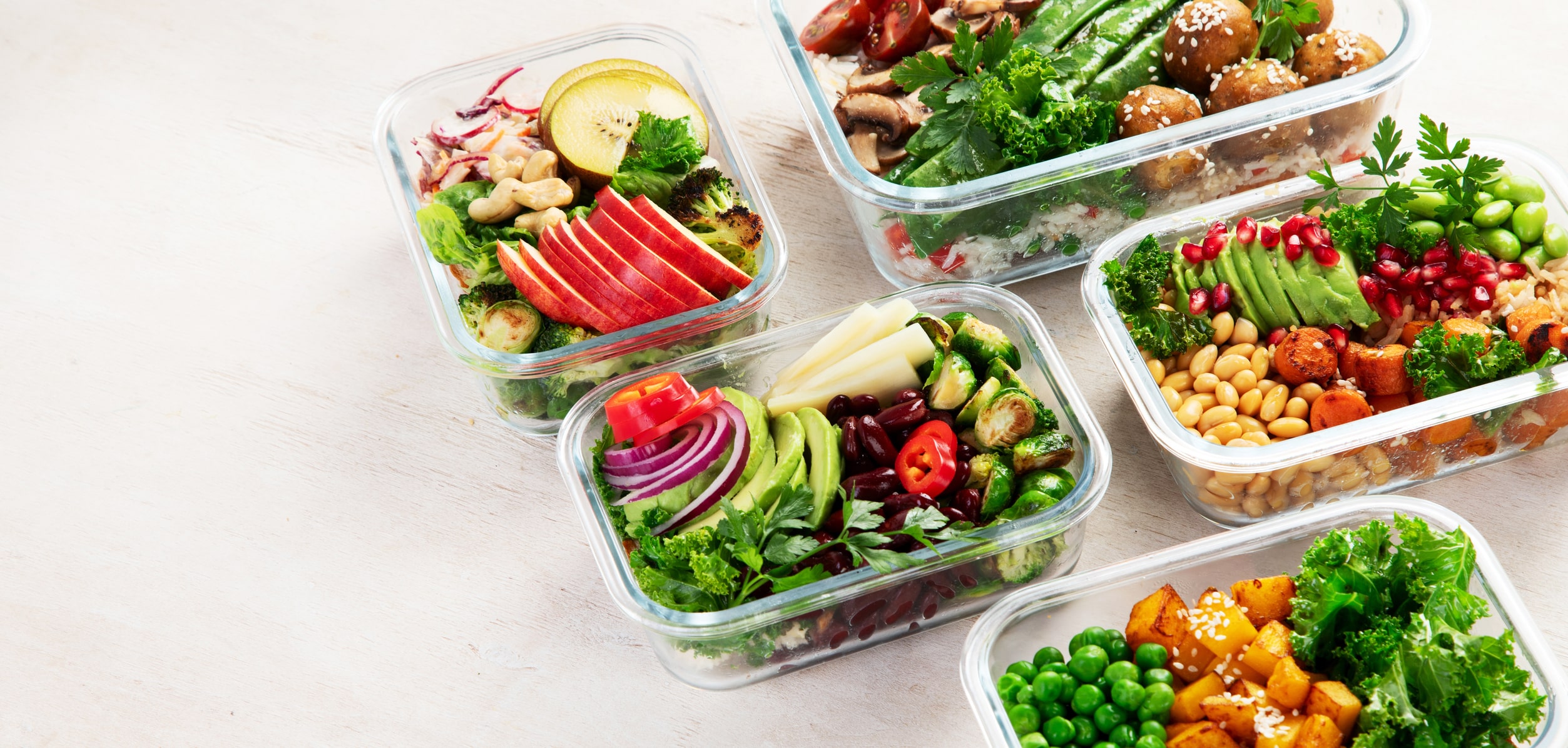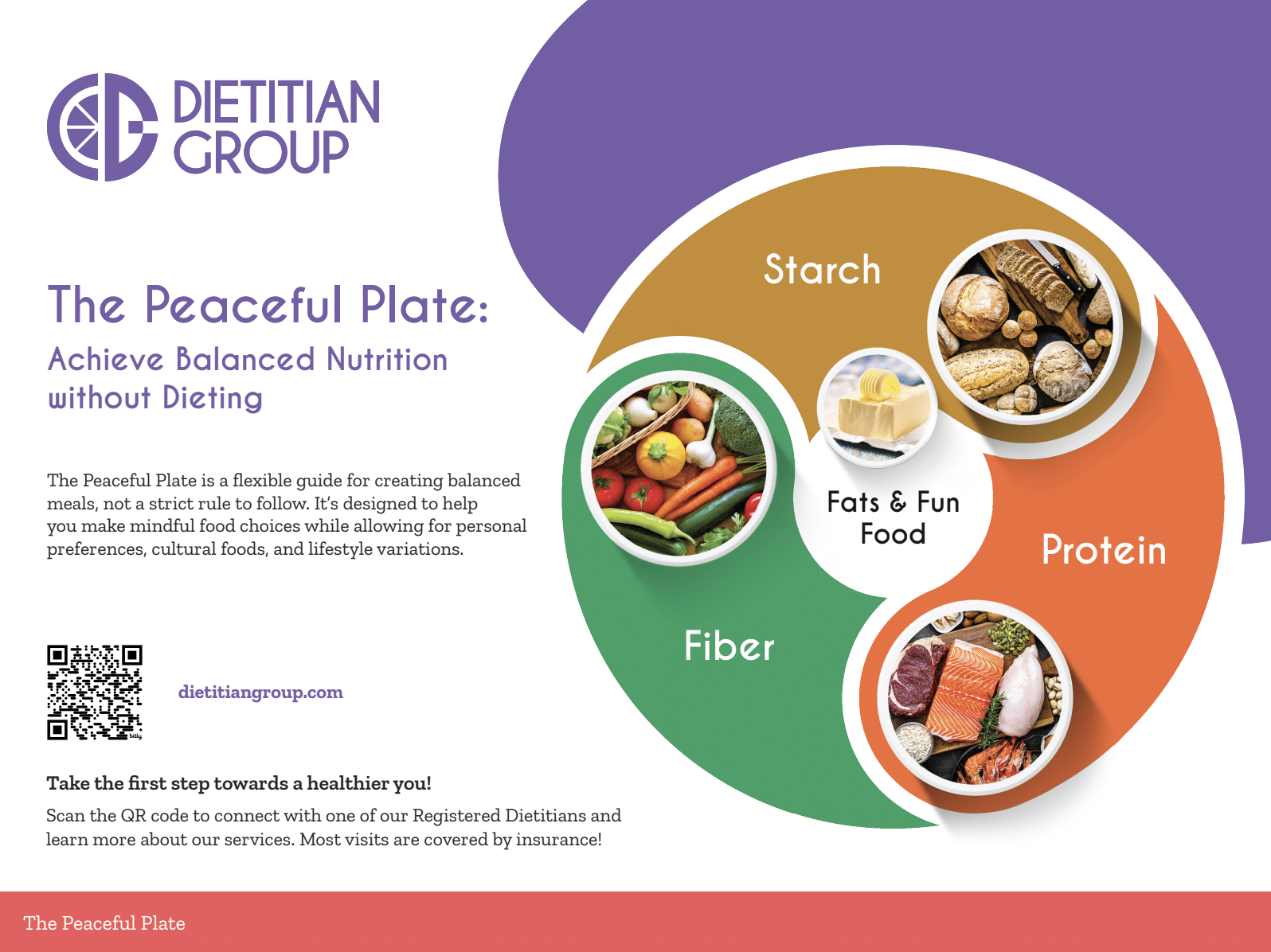Dietitian Meal Plan
For those exhausted by the daily ‘what’s for dinner’ struggle, our systematic meal design process streamlines your weekly food choices, turning meal planning from a source of stress into a simple, enjoyable routine.
Nutritionist Meal Plan
We understand how draining and overwhelming meal planning can be, especially when trying to balance nutrition, taste, and your busy lifestyle
Dietitian Group’s meal planning approach eliminates the daily struggle of deciding what to eat. We provide a systematic, personalized meal plan that shifts overwhelming food choices into streamlined weekly plans. Our plans are flexible with your schedule, turning meal preparation from a source of stress into a confident, enjoyable experience.
Imagine a life where:
- Meal decisions become effortless
- You never stress about “what’s for dinner”
- Your nutrition supports your lifestyle
- Meal preparation feels simple and enjoyable


Do Dietitians Give Meal Plans?
At your first session with your registered dietitian, they will assess your experiences with food, intolerances, medical conditions, goals, and needs. Your dietitian will take that information and build a custom meal plan to set you up for success. As an expert on nutrition, a dietitian’s primary goal is to ensure that you get all the proper nutrients to sustain yourself.
When creating a meal plan, your dietitian will focus on all the working parts of your food consumption (from spending habits to kitchen appliances) so that whichever meal plan they recommend, you can follow through with it.
How it Works
1. Set Your Appointment
Schedule initial consultation to begin your personalized journey
2. Discover Your Plan
Complete a comprehensive intake exploring your goals, history, and preferences to build a customized approach
3. Live Your Plan
Begin your personalized journey with regular check-ins that celebrate wins and adapt as your life evolves

Meal Planning Without the Stress

Get Comfortable in the Kitchen
Forget everything you know about rigid meal plans that make you feel like a failure. Traditional meal planning approaches can feel like they’re boxing you in, not lifting you up. Our method starts with understanding your lifestyle, cooking skills, and personal preferences. We’re not here to create impossible standards, but to design a flexible approach that actually fits your real life. Whether you’re a busy professional, a parent juggling multiple responsibilities, or someone managing a health condition, our meal planning strategy adapts to you – not the other way around.

Cooking with Confidence
Successful meal planning means creating a sustainable rhythm that supports your health and sanity. We’ll help you build a system that reduces decision fatigue, minimizes food waste, and actually makes cooking feel doable. Our approach goes beyond just listing recipes. We’ll help you understand how to batch cook, make smart ingredient swaps, and create a meal framework that gives you both structure and flexibility. Imagine walking into your kitchen feeling confident, not overwhelmed.

Building Basic Meal Planning Skills
Cooking shouldn’t feel like a chore. Our meal planning approach is about building skills, not following strict recipes. We’ll help you develop intuitive cooking techniques that grow with you, turning meal preparation from a source of stress into a source of creativity and joy. Learn how to stock a pantry that works for your lifestyle, master quick and adaptable cooking methods, and build a repertoire of meals that you actually want to eat.

Progress, Not Perfection
Meal planning is a skill, not a talent you’re born with. Our process is designed to meet you exactly where you are, regardless of past successes or failures in the kitchen. We provide ongoing support that celebrates your wins, helps you navigate challenges, and continuously adapts to your changing life. No guilt, no shame, just practical strategies that help you nourish yourself with confidence and ease.

My nutritionist, Marisa, is friendly, knowledgeable, detailed with service that is thought-provoking and timely. I enjoy getting the help that I need to set, maintain and achieve my health goals.

Beat the Meal Planning Burnout
At Dietitian Group, we know you want to be a confident, well-nourished individual who enjoys meal preparation. In order to do that, you need a meal planning approach that truly understands your life. The problem is that constant meal decisions create stress and overwhelm, which makes you feel exhausted and frustrated.
We believe meal planning should be simple, not stressful. We understand the challenges you face, which is why we’ve developed a systematic approach to meal design.
We’ll transform overwhelming food choices into streamlined weekly plans that adapt to your schedule and nutritional goals.
A Science-Backed Approach
to Balanced Nutrition Without Dieting
Nutrition shouldn’t be complicated. The Peaceful Plate Guide offers a straightforward, compassionate framework for nourishing your body and enjoying food without stress or restriction.
- Intuitive Eating Framework: A science-backed approach that helps you understand your body’s unique nutritional needs without strict rules.
- Flexible Meal Planning: Learn to create balanced meals that adapt to your lifestyle, preferences, and health goals.
- Holistic Nutrition Strategies: Discover how to support your mental and physical well-being through mindful eating techniques.
- Personalized Nutrition Guidance: Tools to help you build a positive, sustainable relationship with food that goes beyond traditional dieting.



